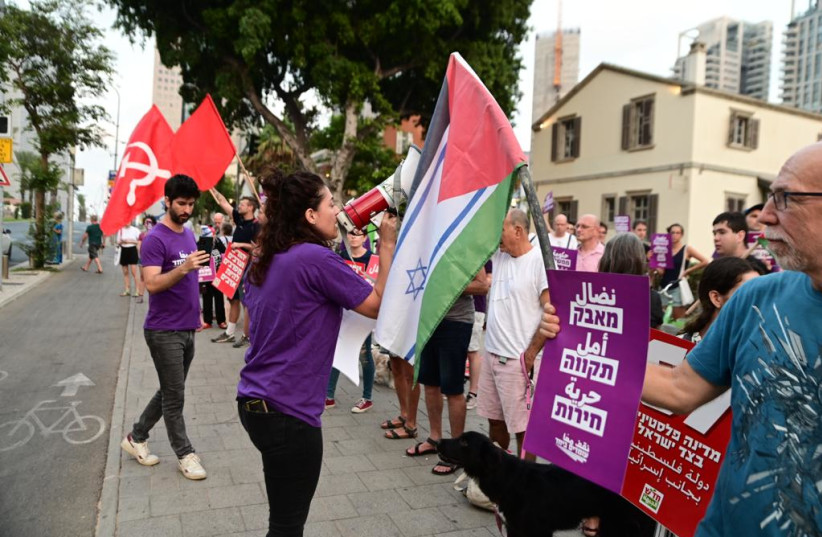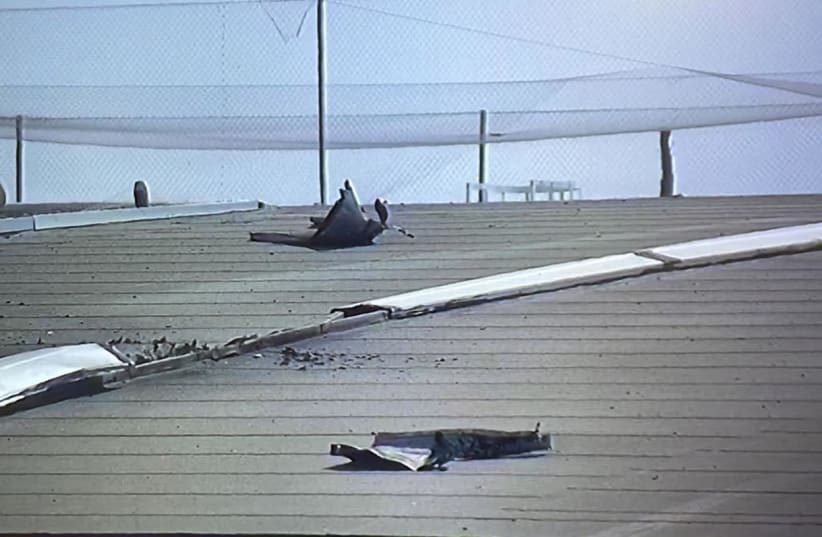Operation Breaking Dawn, which started on Friday, was a long time in the making.
Israel’s southern communities had been in a lockdown since last Tuesday after Israeli security forces arrested Palestinian Islamic Jihad senior member Bassam al-Saadi in Jenin. Good intelligence and careful preparation are obviously necessary to carry out such an arrest.
Residents of the South, who were held virtual hostages afterwards, now know why: Such intelligence and preparation also enabled the IDF on Friday to kill Islamic Jihad’s top commander in Gaza, Tayseer al-Jabari, in a precise operation and thwart a ticking time bomb: He was reportedly involved in planning imminent major attacks on Israel, including the use of lethal anti-tank missiles close to the border.
Jabari replaced Baha Abu Al-Ata, who was killed in a similar airstrike in November 2019. Other senior Islamic Jihad figures were killed in well-conducted strikes over the weekend, including Islamic Jihad’s southern division commander Khaled Mansour.
Although it is natural to compare the current round of fighting with terrorists in the Gaza Strip to last year’s Operation Guardian of the Walls – when Hamas launched an attack on Israel starting in the capital on Jerusalem Day in May 2021 – Operation Breaking Dawn so far seems to have more in common with Operation Black Belt in which Al-Ata was killed and Hamas chose not to get openly involved.

Responding to threats
But if Israel doesn’t forcibly respond to the threats of one terrorist organization, the other organizations driven by the same desire to harm the Jewish state will be emboldened. And that includes Hezbollah over Israel’s northern border with Lebanon as well as terror cells in Judea and Samaria (the West Bank).
Over the weekend, Islamic Jihad launched more than 350 rockets at Israel and many more were fired at the country yesterday. Although the United States and others issued initial statements of Israel’s right to self-defense, there were also immediate calls for Israel to prevent an escalation and in effect to stop responding.
Although Israel has the upper hand from a purely defensive viewpoint in this round of hostilities, like in previous ones, the Palestinians have the advantage when it comes to public relations and international sympathy. Whenever Israel justifiably responds to the indiscriminate firing of rockets – every one of them a war crime – by carrying out attacks against terrorist targets in Gaza, it is immediately and unfairly perceived as the aggressor rather than the victim.
Distressing footage like that of a destroyed Gazan home in Jabalya, where children lost their lives, does nothing to help Israel’s image. But the IDF shared evidence that the incident was the result of a rocket launched by Islamic Jihad which landed short in the Gaza Strip, and not on a civilian target in Israel as intended.
“This incident is an example of Islamic Jihad harming the residents of Gaza,” the Public Diplomacy Directorate said. “All harm to innocent civilians is tragic. All fire by the Islamic Jihad terrorist organization is a double war crime: It is shooting at civilians, and using Gazan civilians as human shields.”
The willingness to use your own people as human shields in terrorism and as props in a PR war is a win-win situation for the Palestinians and is exploited by Iranian-backed Islamic Jihad and Hamas, among other terrorist organizations. While Israel needs to maintain its policy of trying to minimize casualties of innocent people, it cannot simply stop fighting terror. The country cannot afford a situation in which the terrorist organizations literally call the shots.
“All harm to innocent civilians is tragic. All fire by the Islamic Jihad terrorist organization is a double war crime: It is shooting at civilians, and using Gazan civilians as human shields.”
Public Diplomacy Directorate
We call on the IDF to continue to fight back precisely and intelligently with clear goals and targets while also planning its exit strategy for when those goals have been achieved. Israel was right to take the initiative and tackle the Islamic Jihad terror threat. And it also needs to create a similar plan to maintain deterrence and prevent another round of violence in the near future.
Israel does not want loss of life on either side, but allowing terror cells to grow is a danger to the Jewish state – and to the Palestinians themselves – as well as having ramifications across the region and beyond. The very name Islamic Jihad is a sign that this is a terrorist organization whose credo comprises death and destruction of the type felt in global jihad. Israel doesn’t only have the right to defend itself, it has the duty. The free world must stand by Israel in its fight on terror, as it fights on the front lines for all.
